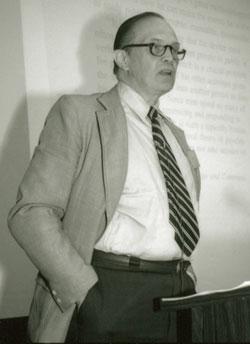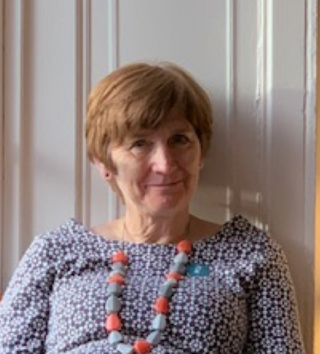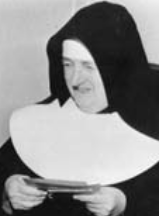
James Mark Baldwin was an American philosopher and psychologist who was educated at Princeton under the supervision of Scottish philosopher James McCosh and who was one of the founders of the Department of Psychology at Princeton and the University of Toronto. He made important contributions to early psychology, psychiatry, and to the theory of evolution.

George Armitage Miller was an American psychologist who was one of the founders of cognitive psychology, and more broadly, of cognitive science. He also contributed to the birth of psycholinguistics. Miller wrote several books and directed the development of WordNet, an online word-linkage database usable by computer programs. He authored the paper, "The Magical Number Seven, Plus or Minus Two," in which he observed that many different experimental findings considered together reveal the presence of an average limit of seven for human short-term memory capacity. This paper is frequently cited by psychologists and in the wider culture. Miller won numerous awards, including the National Medal of Science.
The British Psychological Society (BPS) is a representative body for psychologists and psychology in the United Kingdom.

Ian John Deary OBE, FBA, FRSE, FMedSci is a Scottish psychiatrist known for work in the fields of intelligence, cognitive ageing, cognitive epidemiology, and personality.
David Daiches was a Scottish literary historian and literary critic, scholar and writer. He wrote extensively on English literature, Scottish literature and Scottish culture.
Ivana Marková FBA is a Czech born social psychologist known for her work on language and the constructs of communication.
Oliver Louis Zangwill FRS was a British neuropsychologist. He was Professor of Experimental Psychology, University of Cambridge, 1952–1981, and then professor emeritus. His father was author Israel Zangwill; his mother was author Edith Ayrton, whose parents were physicist William Edward Ayrton and physician Matilda Chaplin. He was elected a Fellow of the Royal Society in 1977.
Fergus Ian Muirden Craik FRS is a cognitive psychologist known for his research on levels of processing in memory. This work was done in collaboration with Robert Lockhart at the University of Toronto in 1972 and continued with another collaborative effort with Endel Tulving in 1975. Craik has received numerous awards and is considered a leader in the area of memory, attention and cognitive aging. Moreover, his work over the years can be seen in developmental psychology, aging and memory, and the neuropsychology of memory.

Sir Godfrey Hilton Thomson FRSE DCL was an English educational psychologist known as a critical pioneer in intelligence research.
The degree of Doctor of Clinical Psychology (DClinPsy/DClinPsych/ClinPsyD) is a professional doctorate in clinical psychology, awarded mainly in the United Kingdom and Ireland. The degree has both clinical and research components, and qualifies the holder to practice as a clinical psychologist in Britain's National Health Service and other clinical settings. It bears some similarities to the Doctor of Psychology degree in the United States.
James Drever FRSE (1910–1991) was a Scottish academic who served as the first Principal of the University of Dundee. He has been described as 'one of the most pivotal figures in the university's history'.
Sir James Drever FRSE was a Scottish psychologist and academic who was the first Professor of Psychology at a Scottish university.
Alexander Allan Innes "Zander" Wedderburn was a British psychologist renown for his research on shiftwork and for the development of the teaching of occupational psychology.

Douglas James Guthrie FRSE FRCS FRCP FRCSEd FRCPE was a Scottish medical doctor, otolaryngologist and historian of medicine.

Dorothy Evelyn Miell is a professor of Social Psychology. Since March 2010, she has been Head of the College of Arts, Humanities and Social Sciences, and Vice-Principal, at the University of Edinburgh. Before moving to Edinburgh, she was Dean of Social Sciences at the Open University. Her research focuses on collaboration and communication patterns, recently in the context of creative endeavors.
Heinz Rudolf Schaffer (1926-2008) was a German-born British developmental psychologist.

Hilda Gertrude Marley OBE, known in her religious order as Sister Marie Hilda, was a British educator, psychologist and Roman Catholic religious sister.
Boris Semeonoff (1910-1998) was a British psychologist with particular expertise in personality assessment.
Robert Maclaughlin Farr was a social psychologist from Northern Ireland who played an important role in promoting and developing social representation theory.
Martin McHugh was an Irish psychologist.






